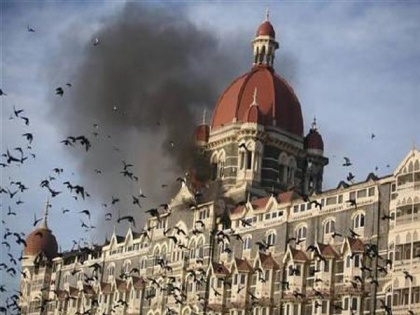Journalists must protect the security, privacy of victims when they report on terror incidents: Expert
By ANI | Published: November 28, 2021 03:33 AM2021-11-28T03:33:38+5:302021-11-28T03:40:03+5:30
An expert has said that the most important thing for journalists when they report on terror incidents is to protect the security, privacy and dignity of victims.

Journalists must protect the security, privacy of victims when they report on terror incidents: Expert
An expert has said that the most important thing for journalists when they report on terror incidents is to protect the security, privacy and dignity of victims.
The remarks came from Ruhi Khan, a journalist who was working with a leading broadcaster in India during the horrific Mumbai terror attacks in November 2008.
"I believe the most important thing for journalists reporting on terror attacks is to be empathetic in their reportage. Empathy ensures that journalists report is in a way that is informative but also respectful to the victims of the terror attack," Khan said in her blog in the London School of Economics and Political Science (LSE).
The expert also said that today's media, particularly in India is based on breaking the 'first' rather than aiming to report 'right'.
"While covering acts of terrorism, it is important to reflect rather than rush. Reflection helps to ensure that the fundamental norms and values of journalism are adhered to in all reportage. Good journalism must protect the victims: their security, privacy and dignity," Khan said in her blog in LSE.
The expert and veteran journalist also said that free media is the major principle of any democracy but it is also used by terrorists to the fullest.
"It has been said that journalists are terrorists' best friends because they are willing to give terrorist operations maximum exposure," Khan said.
"It simply means that violence is news, whereas peace and harmony are not. The terrorists need the media, and the media find in terrorism all the ingredients of an exciting story," she added in her blog.
Meanwhile, thirteen years have passed but the dreadful incident of the 26/11 Mumbai attack has left a scar in the minds and hearts of survivors and their families.
The ghastly attacks, which began on November 26, 2008, lasted for four days, leading to the death of 166 people and injuring over 300.
After the attack, it was established that the 10 terrorists had sailed to Mumbai from Pakistan's port city, Karachi. Their voyage to Mumbai involved hijacking fishing dingy and killing four of the five men crew, leaving one occupant to ferry them to the Mumbai coast.
In these gruesome attacks, 9 terrorists were killed and the lone survivor, Ajmal Amir Kasab, was caught and was sentenced to death at Yerwada Central Jail in Pune in 2012.
The Jamaat-ud-Dawah (JuD), whose mastermind was Hafiz Saeed, was believed to have plotted the 26/11 attacks.
( With inputs from ANI )
Disclaimer: This post has been auto-published from an agency feed without any modifications to the text and has not been reviewed by an editor
Open in app